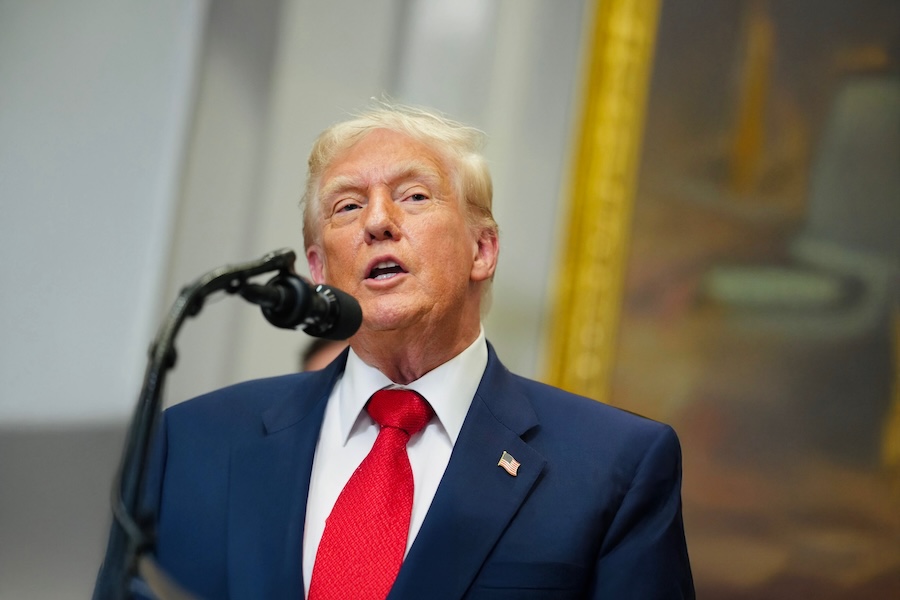Mexican Senator Lily Tellez, a prominent member of the opposition National Action Party (PAN), expressed agreement with recent statements by U.S. President Donald Trump regarding the influence of drug cartels in Mexico.
Tellez described Trump’s comments about the nation being heavily influenced by cartels as accurate, stating that they reflect a reality acknowledged by many Mexicans. She emphasized that such observations do not discredit the nation’s honest and hardworking citizens, but rather highlight issues within the current administration led by socialist President Claudia Sheinbaum.
Tellez, known for her outspoken criticism of government policies, argued that the extent of cartel operations in Mexico could not occur without involvement from certain political figures. In a recent address, she directly referenced President Sheinbaum, claiming that Sheinbaum does not represent the broader Mexican populace, but rather interests aligned with the ruling party.
The opposition leader further claimed that former President Andrés Manuel López Obrador (AMLO) and Sheinbaum had collaborated with cartels during their electoral campaigns, contributing to increased cartel dominance over Mexican territory.
According to Tellez, while cartel activities predate the MORENA government’s tenure, their power has expanded significantly under its watch, leading to what she described as a relinquishment of national sovereignty. She pointed to evidence from U.S. law enforcement agencies as evidence for Trump’s public assertions that cartels exert de facto control in parts of the country.
The Mexican lawmaker referenced Alfonso Romo, who served as chief of staff under López Obrador and owns a bank recently sanctioned by the U.S. Treasury Department. The sanctions, announced earlier in October 2025, alleged the institution’s role in laundering proceeds from cartel activities and facilitating transfers for fentanyl precursor chemicals to China.
In response, Sheinbaum’s administration defended the bank, maintaining that no concrete evidence of wrongdoing had been presented by U.S. authorities.
Another example raised by Tellez involved Adán Augusto López, López Obrador’s former interior secretary and a key figure in the current Senate representing Sheinbaum’s interests. Tellez alleged that López has extensive connections to the Barredora faction of the Jalisco New Generation Cartel (CJNG), noting that a close associate and former police chief in Tabasco state is currently facing legal proceedings for leadership in that group. Investigations into such ties have been documented in various reports on organized crime in Mexico.
In addition, Tellez addressed allegations surrounding Andrés López Beltrán, son of the former president, whom she accused of involvement in huachicol operations — the illegal siphoning and sale of fuel from state -owned Petróleos Mexicanos (PEMEX). She claimed these activities operate in coordination with criminal organizations and receive tacit support from the current leadership. Such fuel theft has long been a revenue source for cartels, contributing to economic losses estimated in the billions for PEMEX annually.
The senator underscored the risks faced by critics of the MORENA party, stating that dissent often results in threats, retaliation, or violence, including assassinations.
Tellez drew from her own experience as a journalist prior to entering politics. In 2000, while working as a news anchor in Mexico City, she survived an assassination attempt by cartel-affiliated gunmen following her reporting on links between organized crime and high-level prosecutors. She noted that she was not in an armored vehicle at the time and attributed her survival to chance.
This statement from Tellez comes amid heightened U.S.-Mexico tensions over security cooperation. Trump’s administration has imposed new tariffs on Mexican imports and expanded sanctions on entities linked to cartels, prompting diplomatic flare-ups.
Sheinbaum, who assumed office in October 2024 following López Obrador’s term, has prioritized dialogue with the U.S. on migration and drug enforcement while attempting to defend her government’s reputation. Recent joint operations between Mexican and U.S. authorities have targeted fentanyl labs and trafficking routes, though challenges persist due to the cartels’ adaptability and resources.

